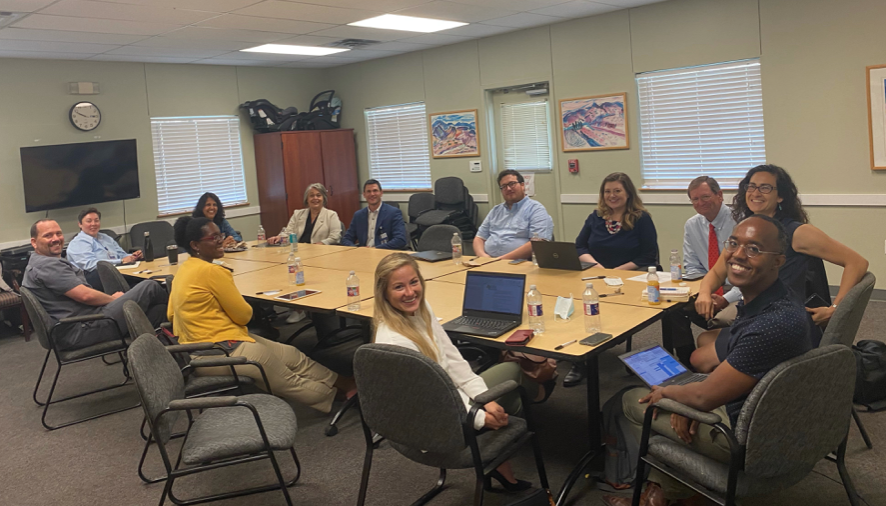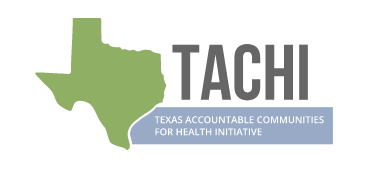
TACHI project aims to build sustainable community-based partnerships to address underlying, non-medical causes of poor health
Partners include organizations focused on housing, social services, employment training, health care, and more
The Texas Accountable Communities for Health Initiative (TACHI), launched by Episcopal Health Foundation, has announced that six local communities from across the state have received funding as part of an $8 million project to go beyond the doctor’s office to improve the health and well-being of Texans.
Each community was awarded funding to establish an Accountable Community for Health (ACH) – a community-based partnership formed by local organizations from different sectors to address underlying, non-medical community health needs like safe housing, food security, safe places to exercise, and more. TACHI will grant funds to each ACH site, depending on specific needs, over a four-year period.
The TACHI sites selected are:
- Austin Rundberg
- Bastrop County
- Brazos Valley
- Greater Northside in Houston
- Gregg County
- Williamson County
“This is an important step forward to position these community-based organizations to advance community-led, financially-sustainable strategies to improve health, not just health care in their own neighborhoods,” says Shao-Chee Sim, EHF’s Vice President for Research, Innovation and Evaluation. “The goal is to improve health outcomes for under-served Texas communities by focusing on healthy living in communities, not sick care. That’s why the unique ACH partnerships are addressing community conditions outside of hospitals and doctors’ offices.”
ACHs include organizations focused on health care, housing, social services, public health, employment training, economic development, and more. Along with grant funding, TACHI offers the six community collaboratives technical assistance and peer-learning opportunities focused on topics related to health equity, community engagement, governance, data infrastructure, and financial sustainability.
“Essentially, ACHs serve as a local platform for bringing community organizations and residents together to address a shared community health goal, achieve greater health equity, and find ways to pay for the improvements over the long term,” Sim said.
EHF provides funding and leadership for the project. Two key partners are also working to ensure TACHI sites are making positive health impacts in their communities:
- Parkland Center for Clinical Innovation (PCCI) serves as the Project Management Office. PCCI, an independent affiliate of Parkland Health & Hospital System is a nonprofit, data science, and innovation organization known for their ground-breaking work in building connected communities of care.
- Georgia Health Policy Center (GHPC) serves as the external evaluator. GHPC, housed within Georgia State University’s nationally ranked Andrew Young School of Policy Studies, will conduct both formative and summative evaluation of TACHI to help PCCI and EHF understand how the initiative is making progress towards the stated goals.
To learn more, visit www.txachi.org.
More information on TACHI Sites
Austin Rundberg » The Austin Rundberg site is a small, urban community located in the City of Austin bounded by I-35 and Mopac. Go Austin/Vamos Austin (GAVA) currently serves as the backbone organization for this collaborative.
Bastrop County » Located east of Austin, Bastrop County Cares will serve as the backbone for this collaborative.
Brazos Valley » Located in Bryan/College Station, Texas A&M University Health Science Center will serve as the backbone for this collaborative.
Greater Northside – Houston » Based in Houston, Avenue CDC will serve as the backbone for this collaborative.
Gregg County » Located in Longview in East Texas, the City of Longview currently serves as the backbone for this collaborative.
Williamson County » North of Austin, the Georgetown Health Foundation currently serves as the backbone for this collaborative.
